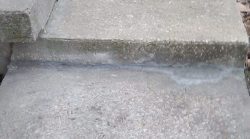In the Midwest region, clay soils are commonly found and have a significant impact on the stability of foundations. Understanding the characteristics of clay soils and their behavior is crucial for homeowners to protect their homes from potential foundation issues. In this blog post, we will explore the nature of clay soils, their expansive properties, and the impacts they can have on Midwest foundation stability. By gaining insights into clay soils, homeowners can take proactive measures to maintain a solid foundation and prevent structural problems.
- What are Clay Soils? Clay soils are composed of fine particles that are tightly packed together. They have the ability to retain water and can become sticky and malleable when wet. In the Midwest, clay soils are prevalent due to the region’s geological history and depositional processes.
- Expansive Nature of Clay Soils: One of the key characteristics of clay soils is their expansive nature. When exposed to moisture, clay soils absorb water and expand. Conversely, during dry periods, they shrink and contract. This constant expansion and contraction can exert significant pressure on foundation walls and footings, potentially leading to foundation movement and structural damage.
- Effects on Foundation Stability: The expansive nature of clay soils poses several challenges to Midwest foundation stability. As clay soils absorb water, they exert pressure against foundation walls, causing them to bow or crack. The cyclic nature of moisture changes can result in foundation movement, uneven settling, and gaps in the foundation. Over time, these issues can compromise the structural integrity of the entire home.
- Signs of Clay Soil-Related Foundation Problems: Homeowners in the Midwest should be vigilant about identifying signs of clay soil-related foundation issues. These may include foundation cracks, sticking doors or windows, sloping floors, or visible gaps between walls and ceilings. Monitoring for these warning signs and addressing them promptly can prevent further damage and costly repairs.
- Managing Clay Soil Challenges: To mitigate the impact of clay soils on foundation stability, homeowners can implement several strategies. These include maintaining proper moisture levels around the foundation, ensuring adequate drainage away from the house, and installing a foundation watering system during dry periods. Additionally, working with foundation repair professionals, like Advanced Systems, can provide expert guidance and tailored solutions for clay soil challenges.
Understanding the nature and behavior of clay soils is vital for homeowners in the Midwest to protect their foundation stability. By recognizing the signs of clay soil-related issues and implementing appropriate measures, homeowners can mitigate potential risks and preserve the structural integrity of their homes. If you suspect clay soil-related problems with your foundation, consult with the experts at Advanced Systems of Northeast Kansas to receive professional guidance and effective solutions for your specific needs. Don’t let clay soils compromise the stability of your Midwest home—take proactive steps to safeguard your foundation today.





